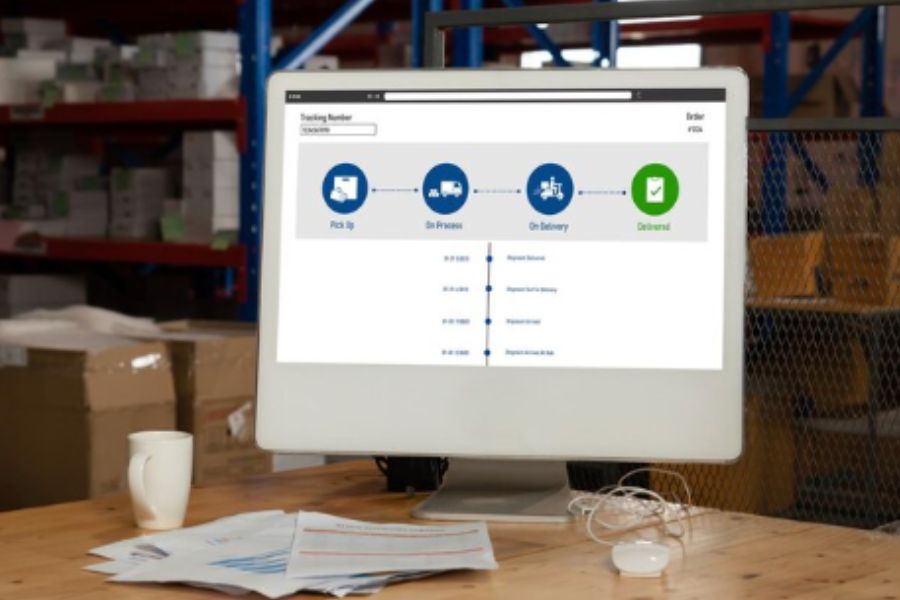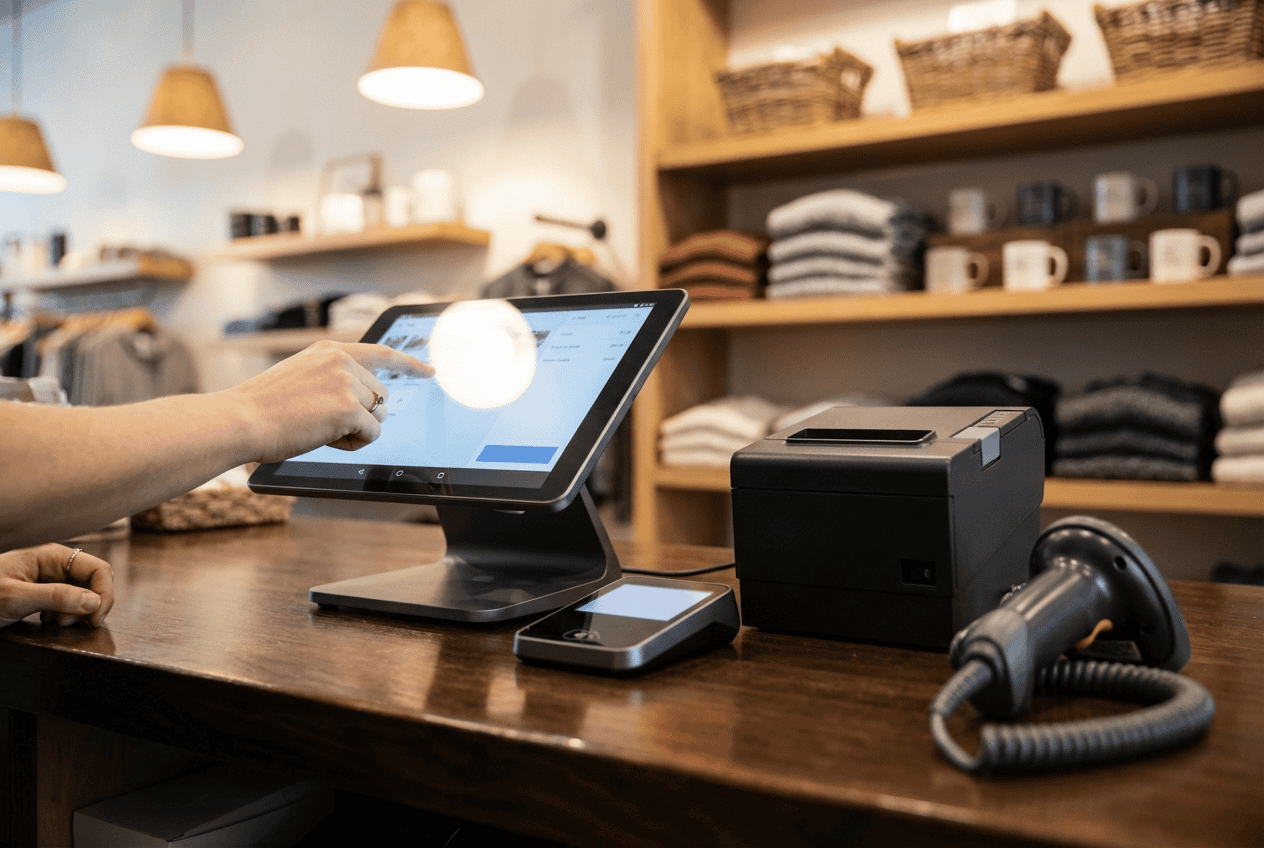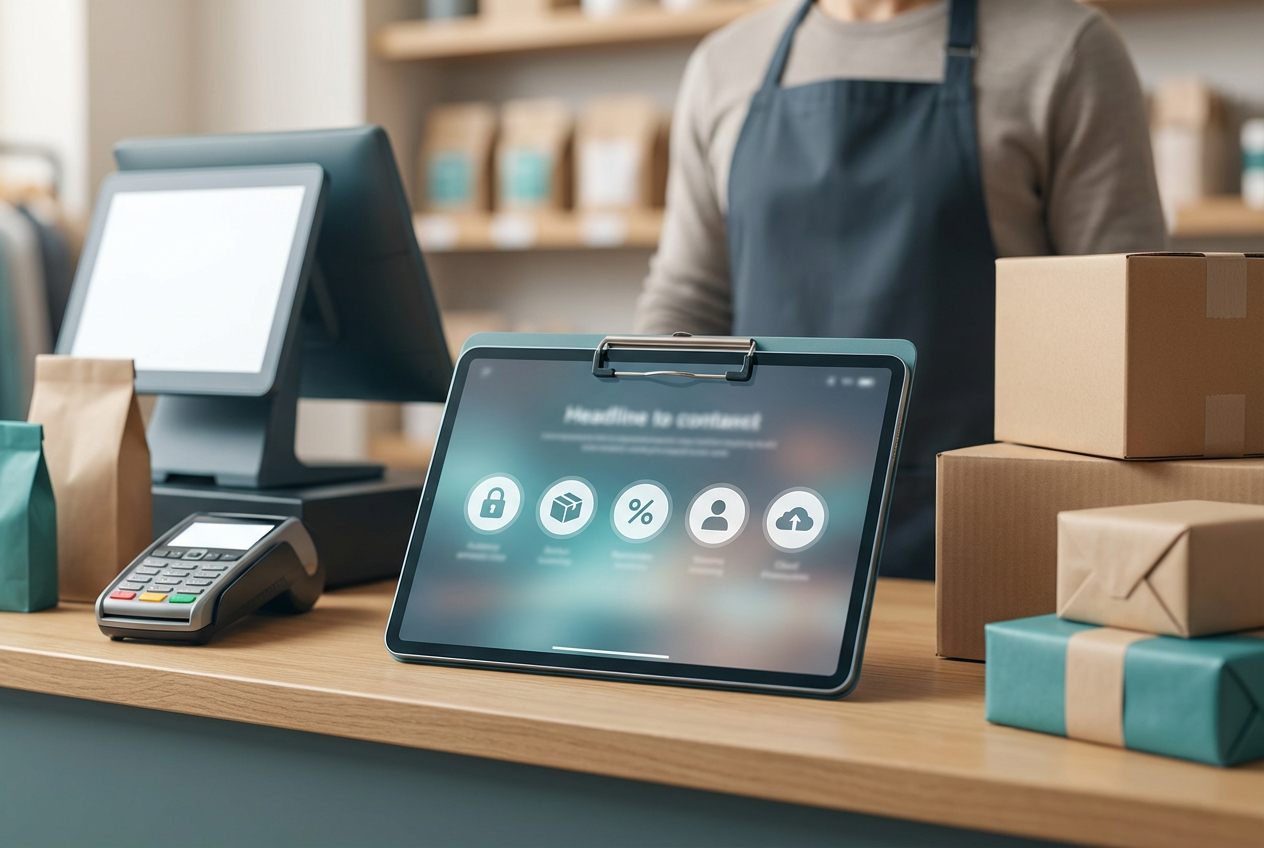Manufacturers, particularly those managing complex processes from production to point of sale (POS), are under constant pressure to streamline operations, eliminate inefficiencies, and improve customer satisfaction. Odoo, an open-source suite known for its comprehensive Enterprise Resource Planning (ERP) solutions, is often considered a go-to platform for businesses aiming to combine the functions of POS to manufacturing Odoo.
Odoo is widely used for integrating POS systems with manufacturing processes, but it’s not the only option. As businesses grow and require more specialized solutions, exploring alternatives like ConnectPOS becomes essential. This article will explore Odoo’s strengths and weaknesses in POS-manufacturing integration, and review ConnectPOS as an alternative, helping businesses make informed decisions based on their unique needs.
Highlights:
- Odoo gives manufacturing companies powerful tools like MRP, inventory control, and end-to-end workflow automation, within a single, connected system.
- However, its POS module can feel too basic for complex retail operations, especially if you need faster checkout, offline mode, or deeper omnichannel features.
Odoo Overview
The global smart manufacturing market, valued at USD 304.51 billion in 2024, is poised for rapid growth, expected to reach USD 1,343.32 billion by 2034, expanding at a CAGR of 16%.

As businesses increasingly move toward digital integration, platforms like Odoo are stepping up to meet the demand for unified management solutions. With its wide range of modules, including sales, inventory, accounting, HR, and manufacturing, Odoo connects operations in one system, eliminating the need for multiple tools.
Odoo’s recent valuation of €5 billion, fueled by investments from Alphabet’s venture fund and Sequoia Capital, reflects its growing influence in the enterprise software space. As manufacturing businesses look to adopt innovative solutions to stay competitive, systems like POS to manufacturing Odoo with manufacturing processes are becoming indispensable.
Built for adaptability, Odoo fits businesses across sectors and sizes. Its open-source base supports deep customization, giving developers the freedom to adjust or expand modules using a wide pool of community-built apps.
The interface is straightforward enough for non-technical users. Staff can track customers, handle orders, generate reports, and manage daily tasks from a central space. More tools can be added as operations grow, without interrupting current work.
Odoo is available in two versions: a free community edition and a paid enterprise edition that includes extra tools and support. The system continues to attract companies seeking a complete platform tailored to shifting demands.
From POS to Manufacturing Odoo
Odoo Point of Sale (POS) Module
The module of POS to manufacturing Odoo supports in-store transactions while staying connected to the broader system. It runs on tablets, desktops, or industrial machines and works even when offline, syncing once the connection is restored. Sales orders made at the counter update the inventory database instantly, keeping stock figures accurate without manual entry.
Payment options, customer loyalty programs, and tax calculations are included, making it practical for retail, food service, and other front-facing businesses. Staff can manage returns, apply discounts, and handle split payments directly through the interface.
►►► Optimal solution set for businesses: Multi store POS, Next-gen POS, Inventory Management Software (MSI), Self Service, Automation, Backorders
The POS module integrates with other Odoo modules, including accounting, inventory, and CRM. This gives teams a real-time view of customer behavior, stock status, and financials without switching platforms. It also supports multi-store setups, helping businesses scale their retail operations while maintaining visibility across locations.
Odoo Inventory & Manufacturing Modules
Managing inventory and production workflows can be challenging without the right tools to maintain accuracy and efficiency. Odoo’s Inventory and Manufacturing modules offer a comprehensive solution for managing stock movement and production processes within a single system.
- Inventory Module: Tracks stock movement across warehouses, stores, or branches. It records incoming and outgoing products, helps plan reordering, and supports barcode scanning for quicker processing.
- Manufacturing Module: Handles production workflows, from bill of materials to work orders. Teams can track progress, manage raw materials, and schedule operations based on demand or available resources. This setup keeps production aligned with sales and inventory data.
Advantages and Limitations of Using POS to Manufacturing Odoo
Advantages
Connecting sales and production through a shared system gives teams a clearer picture of operations. Odoo builds that link by bringing together data from the store counter and the factory floor.
- Unified System: POS to manufacturing Odoo connects POS, inventory, and manufacturing into one platform. This centralization simplifies workflows, making it easier for businesses to manage sales, stock levels, and production without using separate systems.
- Real-Time Updates: With Odoo, data from the POS system instantly reflects in inventory and manufacturing. As sales are processed, inventory counts are updated, and production schedules can be adjusted accordingly to meet demand.
- Scalable for Growth: As businesses grow, Odoo adapts to changing needs. New modules can be added as operations expand, allowing businesses to maintain flexibility and avoid outgrowing their system.
- Customizable: The open-source nature of Odoo allows businesses to tailor it to their unique needs. Features in both the POS and manufacturing modules can be adjusted to better suit specific business requirements, enhancing the system’s fit with company processes.
Cost Efficiency: Odoo consolidates multiple functions into a single platform, reducing the need for multiple software licenses. This helps businesses save on ongoing costs and simplifies system management. - Ease of Use: The user interface is designed to be intuitive, allowing employees to transition between different tasks with minimal training. This makes it easier for teams to adapt to the system and improve daily operations.
Limitations
Using a single system to link sales and production can simplify certain tasks but also introduce challenges. POS to manufacturing Odoo brings functions together, though setup may take effort. Without technical help, resolving issues can slow progress. Unique workflows may also require additional effort during growth.
- Implementation Complexity: Customizing Odoo to match specific business requirements can be a complex process. Setting up the platform, particularly for large operations, may require professional assistance or a dedicated IT team.
- Integration Issues: Integrating Odoo with third-party systems may pose challenges. While it works well within its own ecosystem, connecting it to external platforms for payments or other specialized tasks can require additional configuration.
- Learning Curve: Although Odoo is user-friendly, employees might still face challenges in learning all the features. The variety of functions can be overwhelming, and proper training is necessary to maximize the system’s potential.
Support Limitations: Businesses using the free community version may find support less accessible. While a large community exists, direct assistance from Odoo’s team is more readily available for those with enterprise subscriptions. - Resource Demands: As businesses expand and more modules are added, Odoo can become resource-heavy. This may require upgrades to infrastructure, particularly for businesses with large-scale manufacturing or high transaction volumes.
- Industry-Specific Limitations: Odoo is customizable, but businesses in niche industries may require more specialized features. This may involve additional development work to adapt the software, resulting in higher costs and longer implementation times.
Alternatives to Odoo in 2025 – ConnectPOS
As businesses rethink how production and sales interact, having a tailored POS system built for manufacturing becomes a turning point. ConnectPOS responds to these demands with a setup grounded in practical execution and built for real-world complexity. It doesn’t try to do everything — it focuses on doing the right things well, helping manufacturers keep pace with changing expectations, large teams, and layered workflows.
Key capabilities of ConnectPOS for manufacturers include:
- Future-Ready Innovation: Build on Microservices, API-first, Cloud-native, and Headless architecture for flexibility and scalability.
- Smarter Workflow Management: Eliminate operational bottlenecks by automating processes and optimizing inventory for increased efficiency and growth.
- Elevated Customer Engagement: Deliver accurate orders and reliable experiences that foster trust, increase customer satisfaction, and drive long-term loyalty.
- Optimized Efficiency Across Processes: Integrated solutions for real-time data on orders, stock levels, and performance, removing manual reporting and aligning production, sales, and fulfillment.
- Always-On Management: Keep inventory updated, stock movement accurate, and sales uninterrupted, even when the internet connection is unreliable.
- Advanced Reporting and Analytics: Leverage insights into sales, inventory, and operations to make informed, data-driven decisions.
- BOM Integration for Manufacturers: Integrate Bill of Materials (BOM) data to simplify accounting, tax preparation, and compliance with regional regulations.
- Multi-Channel Selling Support: Efficiently manage both B2B and B2C transactions to meet the needs of wholesalers, retailers, and direct customers.
- Customizable Workflows for Large Teams: Tailor workflows with role-based access and routing for complex manufacturing operations.
- Personalized Quoting and Payment Options: Generate custom quotes, offer bulk pricing, and support global transactions with multi-currency options.
- Mobile POS Flexibility: Empower teams with mobile POS to take orders, check stock, and process payments from anywhere on the go.
- Leading Security Protections: Protect sensitive data with encrypted transactions and role-based access control for secure business operations.
- Unified Manufacturing Ecosystem: Integrate with ERP, eCommerce platforms, accounting solutions, CRM, and payment gateways for a streamlined, synchronized workflow that improves collaboration and productivity.
ConnectPOS doesn’t force manufacturers to change how they work — it adapts to how they already run things, while giving them room to grow.
FAQs: POS to Manufacturing Odoo
- What is POS to manufacturing Odoo, and how does it work with manufacturing?
Odoo POS is a system designed to connect retail sales directly with inventory and manufacturing data. It keeps track of stock levels and updates sales records automatically, making it easier for businesses to manage both retail and production processes together.
- How does ConnectPOS differ from Odoo for manufacturing?
ConnectPOS is tailored to the needs of manufacturers by focusing on workflow customization and mobile POS solutions. It operates with an “always-on” mode that keeps transactions and inventory up to date, even during internet disruptions. Odoo focuses more on traditional manufacturing ERP, with strong integrations but fewer mobile options for the shop floor.
- What makes ConnectPOS a better option for manufacturers than Odoo?
ConnectPOS stands out for its tailored manufacturing tools, such as mobile POS, customizable workflows, and deeper integration with ERP systems. It allows manufacturers to stay aligned with both B2B and B2C sales needs while offering better security and mobile capabilities than Odoo.
Conclusion
As businesses grow, the need for an integrated system to manage operations becomes clear. Odoo has long been a popular choice for manufacturers looking to link their POS and manufacturing processes. While POS to manufacturing Odoo remains a strong option, it’s important to consider each platform’s limitations. The right choice, whether it’s Odoo’s broad capabilities or the tailored approach of ConnectPOS, depends on your business needs and growth plans.
To make an informed decision, carefully assess the unique challenges your business faces. Explore ConnectPOS for a customizable, mobile-friendly solution that could provide long-term value for your operations.
►►► Optimal solution set for businesses: Shopify POS, Magento POS, BigCommerce POS, WooCommerce POS, NetSuite POS, E-Commerce POS



